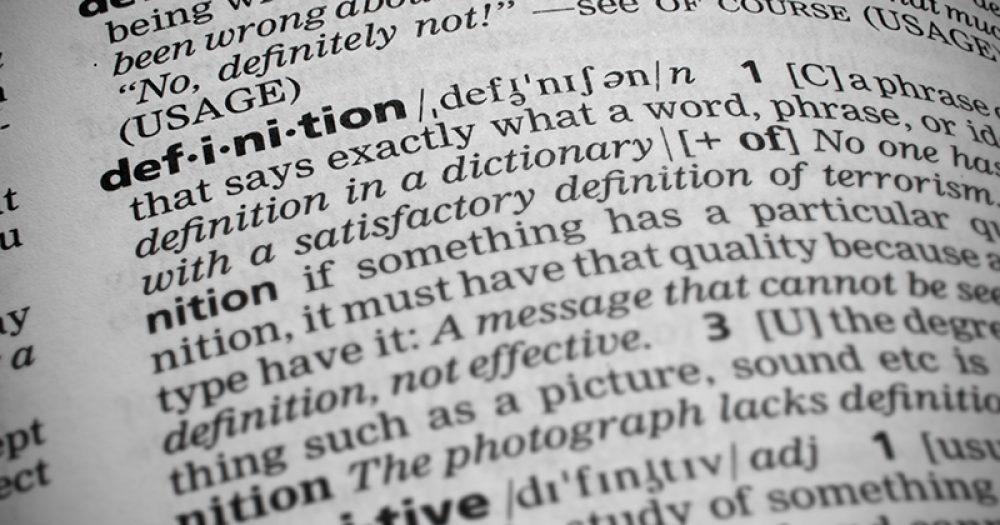The dictionary of secondary schooling has seen a few new additions in 2019. Helena Marsh catalogues them, and makes some early suggestions for the 2020 edition
December marks the final instalment of updates to the Oxford English Dictionary for 2019. While terms such as ‘omnishambles’ and ‘fake news’ have achieved headword status this year, there have been plentiful additions to the educational lexicon.
A move away from acronyms to click-bait catchphrases reflects the increasingly polarised presentation of complex challenges in the sector.
The highlights from the year do read a somewhat like a bleak, Dickensian depiction of childhood. However, as with Dickens’ stories, there’s a glint of optimism for the future.
Inclusion: Are there no prisons?
The terms ‘flattening the grass’ and ‘off-rolling’ have become commonplace in school leadership vernacular, eschewing practices that seek to quash undesirable students or eliminate outliers from performance tables. The inconsistent treatment of schools indulging in seemingly immoral behaviours has created a confused landscape of double standards.
Meanwhile, binary debates pitching ‘trauma-informed’ against ‘zero-tolerance’ approaches and those seeking to ‘ban the booths’ against ‘warm-strict’ methods have resulted in a spectrum of dichotomous soap boxes.
‘County Lines’ is a term that has become ubiquitous and pernicious, while the terms ‘childhood poverty’ and ‘mental health crisis’ have also become commonplace. The risks posed to young people’s health and wellbeing have placed significant pressures on schools already buckling from increasing demands against a backdrop of diminishing and oversubscribed external services.
Curriculum: Great expectations
A barrage of on-trend vocabulary has accompanied the introduction of the new Ofsted inspection framework. The words ‘intent’, ‘implementation’ and ‘impact’ have assumed a certain gravitas, while ‘deep dive’ has quickly developed its own verb status. Schools have rushed to prove their ‘knowledge-rich’ curricula and schemes of work have been replaced by ‘schema’.
The highlights from the year read like a Dickensian depiction of childhood
‘Progress’ and ‘pedagogy’ have taken a back-seat in 2019, being replaced with an appreciation of ‘direct instruction’ and ‘cognitive load’ as particular types of in vogue ‘evidence-informed’ practice. The names of leading thinkers, including ‘Hirsch’ and ‘Rosenshine’, have become bywords for academic challenge.
However, professional stylistic divisions persist, with the case for holistic, discovery and child-led learning being branded as ‘edutainment’ by more traditionalist factions.
Resources: Please, sir, can I have some more?
Schools have continued to struggle financially as promises of ‘fairer funding’ have yet to materialise. ‘Worth? Less’ has become established as the unifying and ‘relentlessly reasonable’ slogan of head teachers and their school communities to challenge insufficient resources.
Euphemistic business terms such as ‘restructure’ and ‘change management’ have become familiar as schools have been forced to cut their ever-shrinking cloths to make budgets balance.
The ‘recruitment and retention crisis’ has deepened further with another year of failed teacher training targets and deserting teachers leaving staffrooms depleted of specialist teachers, adversely affecting workload and morale.
Hope and agency: Consider nothing impossible.
Collins’ dictionary word of 2019, ‘climate strike’ signals a fundamental concern for the health and future for our young people. Meanwhile, another contender for the top spot, ‘hopepunk’ – a movement that celebrates the pursuit of positive aims in the face of adversity – aptly sums up the requisite mood in school staffrooms as we roar into the 2020s.
Running a truly inclusive school with high standards and excellent outcomes on a shoe-string budget can feel like an impossible challenge. Nevertheless, school leaders will continue to work to secure the necessary conditions for their students and staff to flourish.
“Change begets change. Nothing propagates so fast.” So, as 2019 and this government come to a close, I offer three early entries for 2020’s educational dictionary.
Intelligent accountability: The replacement of crude inspection judgements and league tables with humane measures that recognise and celebrate different contextual challenges.
Genuine investment: As opposed to ‘spending’, when referring to government expenditure into schools, reflecting the need for planned, long-term budgeting (and the costs of recommendations from policies like the Early Careers Framework and the Timpson review).
Sustainable schools: Government non-interference, or better yet, policy based on cross-party consensus to allow schools to embed improvements.








Your thoughts